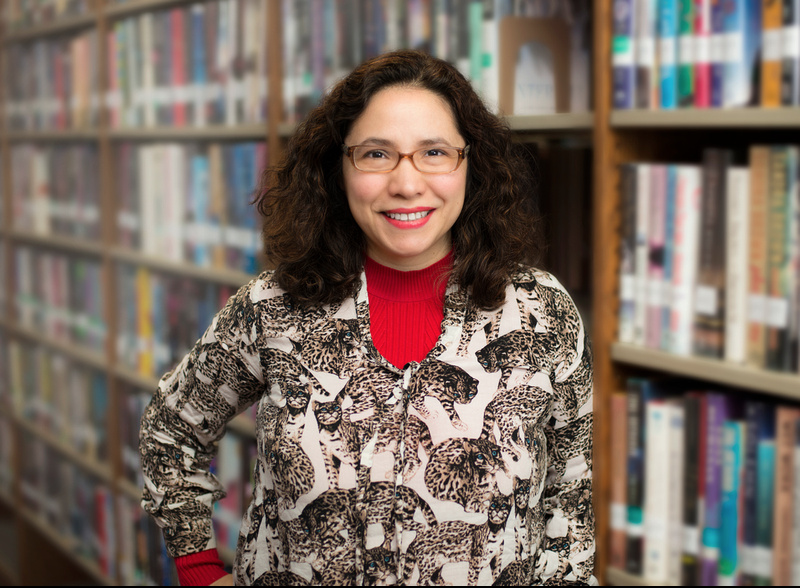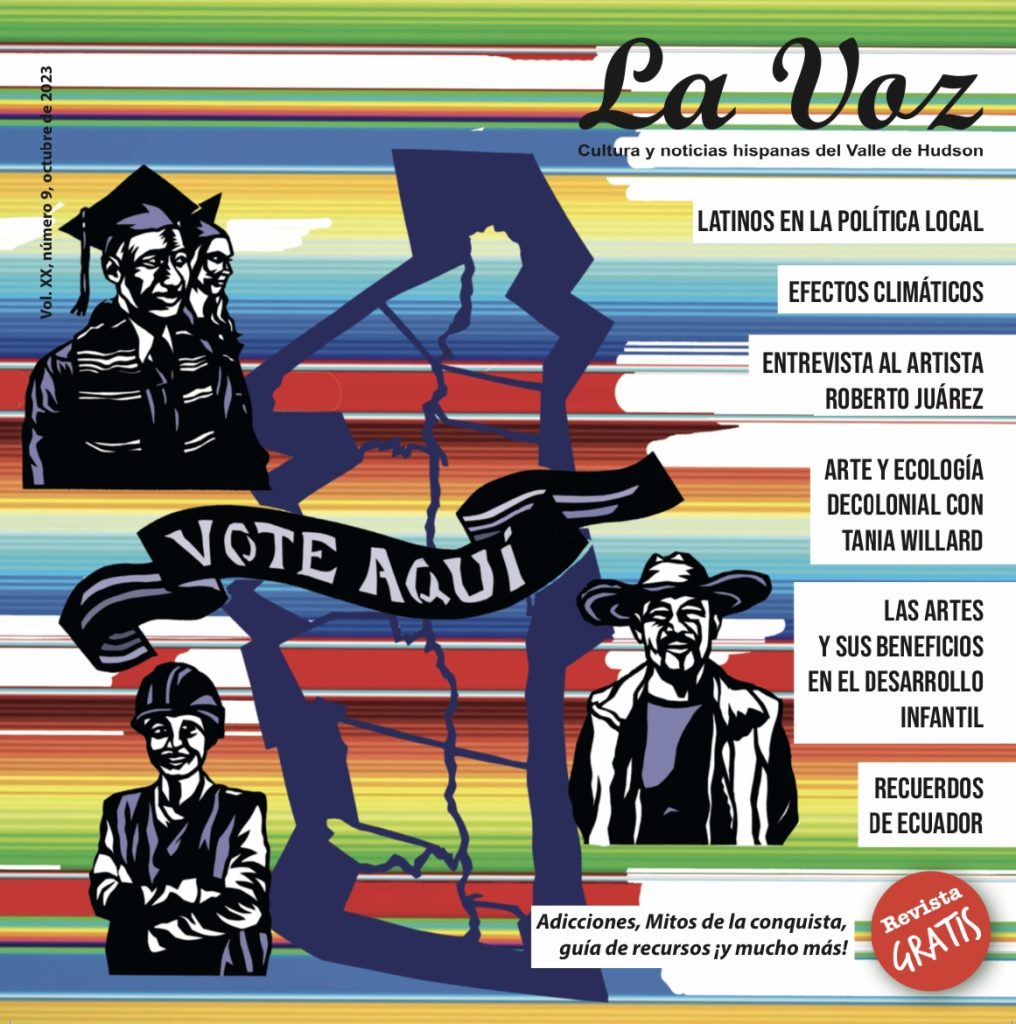A local publication’s 20-year mission to empower readers through stories and advocacy

Photo courtesy of Kristen Thorne
“There is a painter, who painted those who worked on a farm. At first, she started out only painting dots. The dots represented farmers bent over. Soon, she started to get close to them and painted their faces and portraits. People don’t see our faces. We are invisible to others. We are like dots.”
That’s the sentiment of Mariel Fiori, the woman behind La Voz, the only Spanish-language magazine that focuses on the Mid-Hudson region.
La Voz began as a Trustee Leader Scholar (TLS) program project at Bard College in 2004, which is when Fiori attended as a transfer student. The program, which still exists today, is an opportunity for students at Bard to design their own civic engagement projects based on their passions and interests.
With time, and through collaboration between Fiori and students at Bard, La Voz has grown to be a respected local publication serving the Latino communities of the Hudson Valley. Fiori, a journalist, translator, educator, and entrepreneur, now serves as the managing editor of what is now La Voz’s 20th year.
The free magazine includes English learning worksheets, resource guides highlighting local events and activities, advice on personal finance, and opinion pieces. “We Latinos are here to stay,” says La Voz’s “About Us” page on their website, “and we need the tools to learn to navigate the educational, health, business, and political systems in this country and in this state.”
Fiori first came to the United States from Argentina back in 2003 to study at Bard. Afterwards, Fiori studied at NYU, and now lives in Kingston, working throughout the Hudson Valley.
“In many aspects, we are a foreign publication, but since we have been here for almost 20 years, so many people know us,” says Fiori. “It’s not just that we write articles about things we feel are important that no one’s covering, like our own stories, but also if you’re new to the place, we cover what you need to know.”
Fiori also hosts a daily Spanish radio news show, “La Voz con Mariel Fiori,” at Radio Kingston WKNY, which features interviews, music, and information about and for Kingston’s Hispanic community. She also hosts “La Voz en breve” for WVKR, WHDD, and WJFF, radio stations based in Poughkeepsie, Kent, and the Catskills, respectively.
La Voz’s audience can access its resources from its print magazine, website, newsletters, and social media. Fiori, alongside La Voz’s team, staffed by a majority of Bard students, also hosts and attends events throughout the Hudson Valley. “We send people to different events to be in touch with people and the community,” she says.


Lost in Translation
Before she co-founded La Voz, Fiori says she saw very poor Spanish-language journalism. “Things had terrible usage of Spanish, with so many mistakes and typos. That was sort of my pet peeve, to be super honest,” says Fiori.
Since 2017, the Latino population in the Mid-Hudson region has increased by 109%, and as of 2021, close to 180,000 Latinos are living in the Hudson Valley, making Latinos 30% of the area’s population.
Back in 2003, however, Fiori believed there was something wrong.
“If you are a communicator, and the only moment that your readers have contact with something written, write it as best as you can,” says Fiori. Her frustrations with Spanish-language media stemmed from more than typos—Fiori felt that media for Spanish speakers was “a lack of respect.”
So she set out to change that with La Voz.
“Over time, I learned that this country doesn’t value bilingualism or diversity like that. This is a monolingual country.”
Fiori found this right in the Poughkeepsie school district where, according to a 2021 Times Union article, in violation of state regulations and despite 500 Spanish-speaking students, no bilingual education programs existed.
“In Poughkeepsie’s school district, there is a large Latino student population,” says Fiori. The same Times Union article reports almost 30% of students are Latinx. Fiori explains that students who don’t speak English at home are placed in ESL classes. “Everything they do from then on is assimilate, to integrate, and to erase whatever Spanish background they have,” she contends. “Instead of using the wealth that we bring as a diverse community that speaks Spanish and use that to develop and improve in the school system, they want to erase it.”
Less than a year after reporting on Poughkeepsie’s lack of bilingual education, the city’s central school district launched its first bilingual education program for pre-K and kindergarten students, called Day One. The program would then expand to one grade each year. However, Day One is limited to Poughkeepsie’s elementary school, and when students in the program reach middle school, they will be offered language electives and ENL services instead.
Bridging the gap
“We are still foreigners, but there are also families that have been here for 30 years. They have opened businesses in New Paltz, Newburgh, Poughkeepsie, and Kingston,” says Fiori. “ Here, you will find intergenerational businesses and people that are doing a lot for the community. But they don’t receive any type of recognition, or hold positions of power.”
La Voz came from Fiori’s goal to “fill that void,” she says.
When you’re an immigrant living in the United States, “your body is here to work and that’s it,” says Fiori. “But, your soul and mind is in another country.” “In order to succeed, not just be a productive member of society, but to be happy, you have to connect both mind and body.”
An integral purpose of La Voz is to help “make sure people’s whole self is here, by letting them know how to become involved,” says Fiori.
As for La Voz’s future, Fiori’s dream “is to continue to put roots down so strong that no one can move us.”